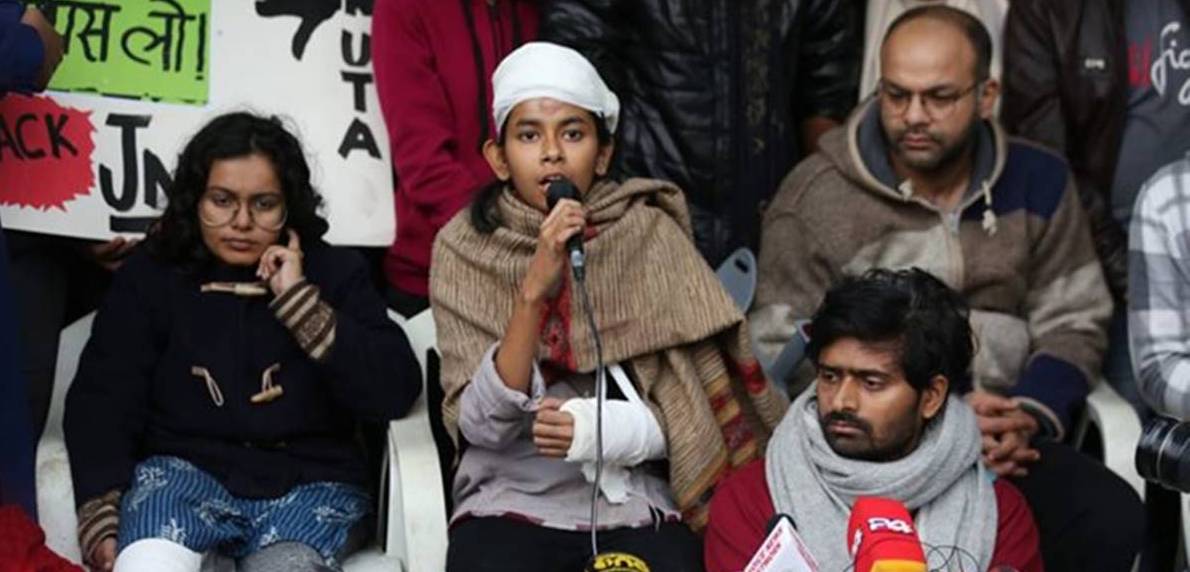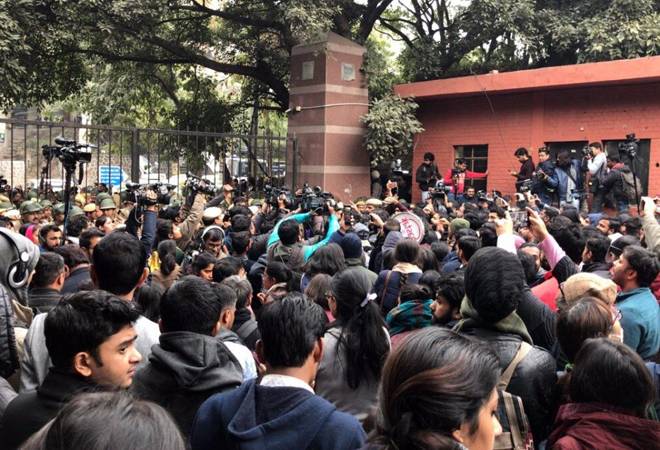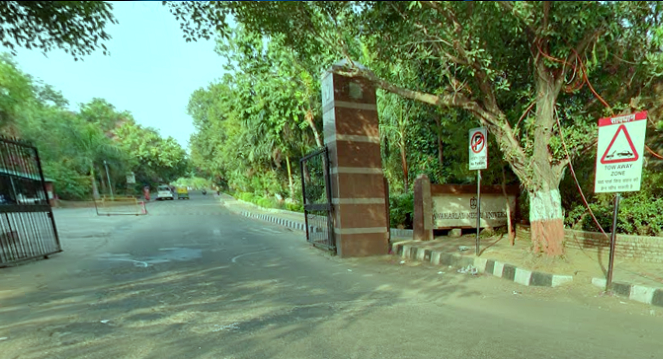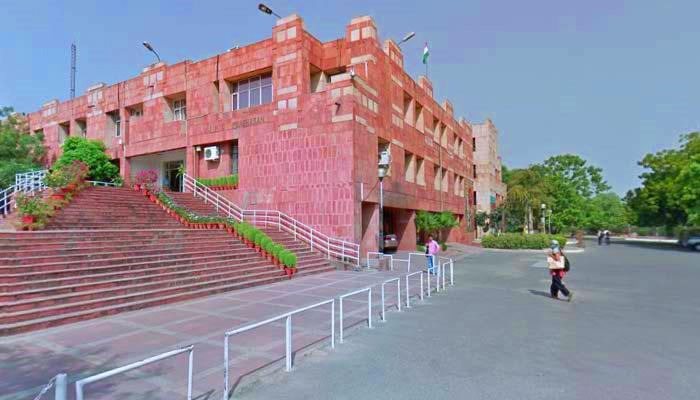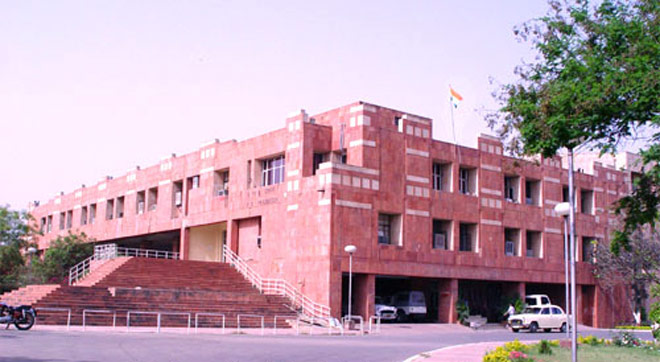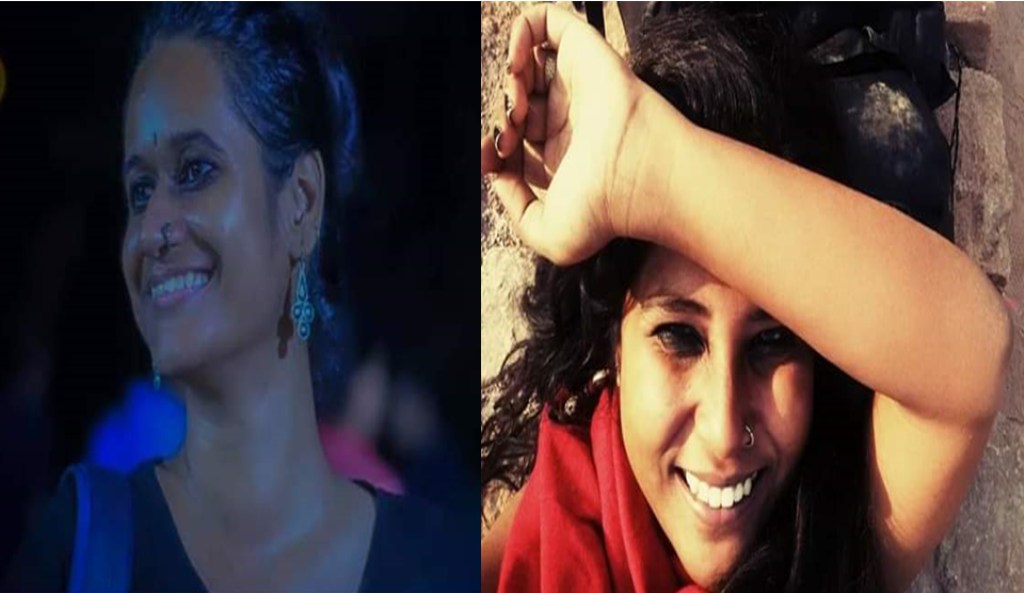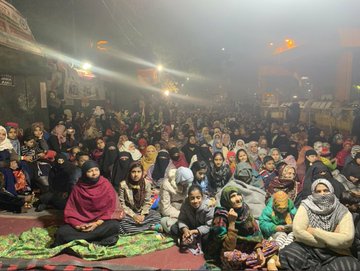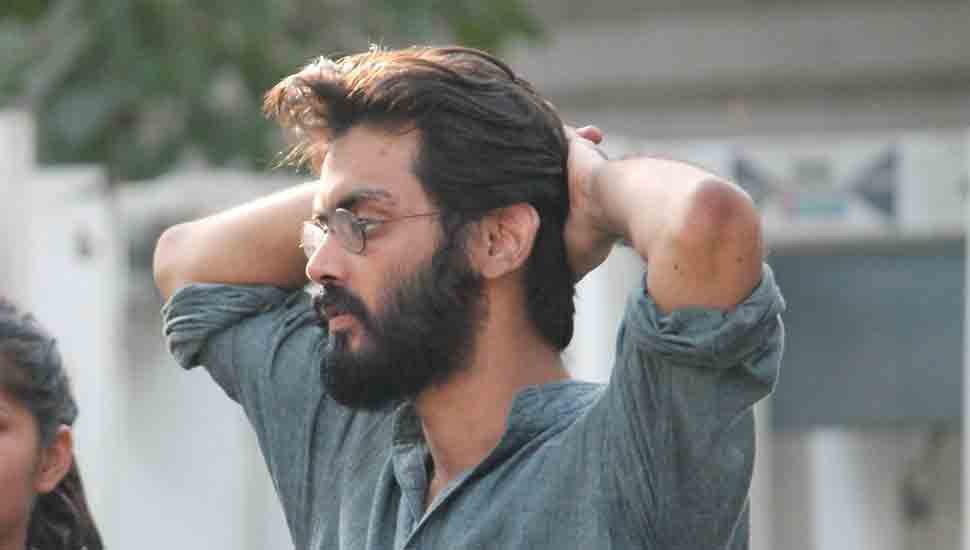It is painful to see an organized effort to destroy a public university like JNU- an iconic centre of higher learning that, as any honest observer of the educational scenario in the country would concede, has transformed people’s lives, aroused hope among the marginalized, generated a culture of critical thinking, and excelled in teaching and research. And it is equally frightening to witness the assertion of the state power, or what Gandhi would have regarded as ‘brute force’–with its police and para military forces – to curb the ‘soul force’ of young students: their democratic right to protest, and raise their voice against some of the oppressive measures that the philosophically impoverished , psychologically violent and emotionally insecure administration has taken to alter its inclusive/egalitarian spirit–the spirit of good quality/affordable education for all, irrespective of one’s socio-economic capital.
What saddens me further is the way the emergent culture industry – through some toxic television channels, organized trolling army in the social media, and manipulative propaganda machinery–has given the impression that this ‘anti-national’ site of learning with its ‘aged’ students pursuing research in ‘irrelevant’ disciplines, and a bunch of ‘leftist’ teachers conspiring against the system does nothing except ‘nihilistic politics’; and hence, it is an unnecessary burden for the taxpayers. Possibly, when the market-driven/consumptionist new middle class has given their consent to the massive commodification of education, and encouraged the growth of ‘top ranking’ fancy private universities as ‘sanitized’ places free from ‘politics’, and with the promise of ‘placement’ and attractive ‘salary package’, a university like JNU with its critically nuanced social sciences, interpretative cultural studies, rigorous foundational sciences, and vibrant political debate on nation, gender, culture and identity looks somewhat odd; it defies the instrumental rationality that reduces education into a mere ‘skill’ dissociated from the politico-ethical and philosophical questins.
Moreover, at a time when the ideology of triumphant majoritarian nationalism feels uncomfortable with the vibrant young minds who, because of the very culture of serious scholarship they are exposed to, interrogate the dominant discourse, and raise new questions relating to nation, religion and multiculturalism, or gender and patriarchy, JNU becomes an ‘enemy’. Yes, the alliance of militant nationalism and neoliberal economy needs loyal conformists, passive consumers, silent employees and non-reflexive youth. Is it the reason why the mighty state is so afraid of JNU students that metro stations have to be blocked and young/dreamy souls have to be detained and injured, simply because they were marching peacefully and moving towards Parliament to make the legistators aware of the implications of the fee hike, or the desperate urge to initiate a dangerous process of privatizing a public institution?
No, I am not obsessed with JNU. My primary concern is the spirit of a public univerity, and the possibility of a culture of learning that can emancipate us from the logic of continual reproduction of caste/class hierarchies in the name of meritocracy. To put it simply, can those who don’t go to Doon school and St. Stephen’s college come to a good university, get great education, and alter their life-projects? Or, is it possible for a Dalit girl from Bihar, or a tribal boy from Chattishgarh to feel that there is yet another world awaiting to welcome them, and they can be taught by the likes of Irfan Habib and Romila Thapar without ‘bank loan’ ? Is it possible to make our classrooms truly heterogeneous, and democratize our consciousness with empathy and care? And herein lies the role of the state; it cannot retreat from investing in education. Hence, I see the present JNU struggle (even if at times, there were momentary aberrations leading to some sort of symbolic violence) in the context of this welfarist ideal–almost forgotten in an age that seeks to marketize and hence, depoliticize all public issues
At a time when the growth of ‘education shops’ has further reduced the possibility of the underprivileged to get higher education, we cannot allow our public universities to die. And particularly, the universities like JNU, HCU and DU generated a dream–equating excellence with social justice, and scholarship with engaged political thinking. Hence, it has to be realized that all of us who still retain the egalitarian ideal of democracy, social equity and cultural pluralism ought to come forward to save our public universities, and make the state accountable. In a way,unlike what the noisy television anchors propagate, it is a larger struggle. Let the distinguished alumni of these universities including the two prominent Cabinet Ministers recall what they have learned from these places with a sense of gratitude, come forward, and resist this onslaught.
There are moments when I look at the covered statue of Swami Vivekananda at my university. I begin to cry. It is so sad to see the politics of appropriation–the way the radical monk (contradictions notwithstanding) with ‘practical vedanta’, welfarist sensibilities and religious syncretism has been hijacked by those who have reduced religion into an ideology of hatred and division. And I ask myself: how would the JNU administration-known for its utter insensitivity to the meaning of a dialogic teacher-student relationship– think of young Narendra’s questionig mind, eternal curiosity, and a life-affirming relationship he evolved with his Master. Well ,it is also sad to know about the defacement of the statue:an ugly act alleged to be conducted by some misdirected students. I would rather urge the students to engage with Vivekananda–the way they study Phule and Ambedkar , or Marx and Foucault, or Narayan Guru and Surdas–more meaningfully, and rescue the Swami’s egalitarian spirit from the statue which, I fear, is nothing more than yet another manifestation of the ugly politics of appropriation by an administration tutored by the self-proclaimed ‘protectors’ of religion.
Avijit Pathak is Professor of Sociology at JNU


